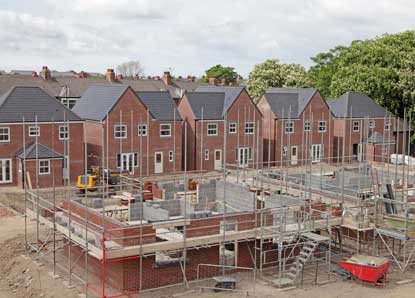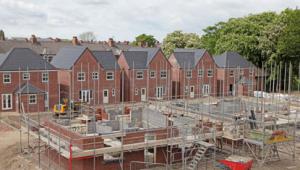Councils have urged the government to drop proposals that would allow property developers to renegotiate infrastructure commitments made in planning deals.
 The Local Government Association made the call today as it launched a Housing the Nation campaign to boost the number of homes built in England and Wales.
The Local Government Association made the call today as it launched a Housing the Nation campaign to boost the number of homes built in England and Wales.Developers are often granted planning permission in return for a community gain, such as affordable housing or investment in infrastructure, including roads and parks. Such deals are known as Section 106 agreements.
This year’s Budget included an intention to consult on reopening negotiations on Section 106 agreements signed off before April 2010 after some developers complained that their infrastructure commitments had become unaffordable.
But the LGA is warning that such a consultation would undermine councils’ efforts to ensure that all new developments come with appropriate infrastructure.
A survey of councillors by the LGA found that most believed Section 106 agreements reduced public opposition to new housing developments.
Keith House, the deputy chair of the LGA’s environment board, said it was ‘widely recognised that we desperately need new homes’.
He added: ‘People don’t dispute the desperate need for new housing but, quite understandably, they just don’t want a new housing estate down the road if it is going to lead to congested roads and crowded classrooms.
Authorities were ‘where appropriate’ renegotiating Section 106 agreements already, he said.
However, he added: ‘Councillors have to balance the interests of their residents with the wider needs of the area. The current economic crisis means that new development is scarce and councils are doing what they can to encourage growth in their areas.’
The LGA also reiterated its calls for restrictions on local authority housing spending to be removed.
House said the government needed to provide local authorities with ‘greater freedom and financial control to invest in new and existing homes’.
Current restrictions include a limit on borrowing for housing, set at the total taken on by councils when they were given back control of their rental income in April, when the Housing Revenue Account subsidy system was abolished.
Only 106,050 new homes were built in 2010/11 compared with 160,030 in 1990/91. Approximately 250,000 are required each year to meet demand, according to the LGA.





















